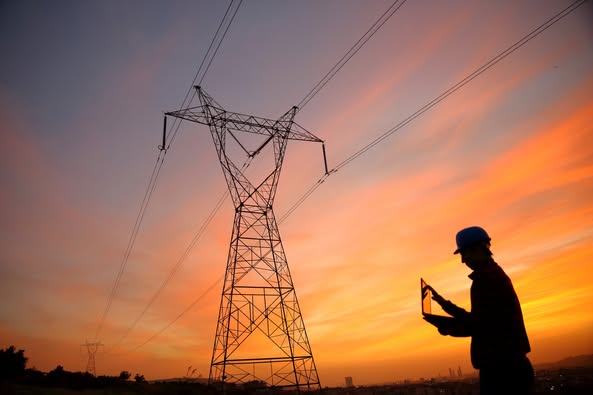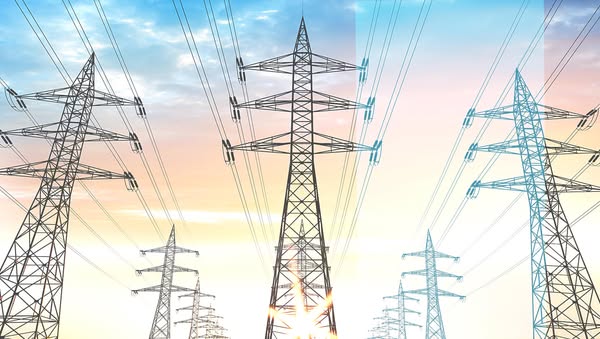ENERGY SERIES | ENERGY DEBATE PART 3
15 JULY 2024 : 12:00AM
FI Team
“ENG. DR. ERNEST MUPWAYA RESPONDS TO PROFESSOR CLIVE CHIRWA”
Financial Insight recently posted an introduction (Part 1) to an Energy Debate, between two stalwarts of industry in Zambia (https://www.facebook.com/share/p/4wV8tGhSE11EaMoE/?mibextid=oFDknk).
In Part 2, we posted a verbatim rendition of Professor Chirwa’s thoughts, and today, we drop Part 3, which former @Zesco Limited Managing Director Eng. Dr. Ernest Mupwaya’s response to the professor, including representation of the PDF document that carried Dr. Mupwaya's opinion.
My Response to Prof Chirwa utterances
Eng Dr Ernest Mupwaya
15-07-2024
I have read the article by Professor Chirwa and have a few observations. Professor Chirwa often behaves like a politician, enjoying the media spotlight to bolster his image and personal brand. He frequently rushes to the media to present himself as a champion and a solution to Zambia's economic problems. It is not surprising that various government officials he attempted to visit have shunned him due to his self-promotional behaviour.
Despite this, Professor Chirwa is supposed to be an expert in Crush Technology. Claiming to be an overnight expert in Electrical Power Engineering, a completely different field, is unreasonable. Zambia has numerous qualified experts in this area, particularly those who have dedicated their careers to ZESCO and CEC, who are well-equipped to address the current power deficit. Many of these experts have quietly advised the government, contributing to the recent restructuring and policy reforms, which are steps in the right direction.
It is widely acknowledged that Zambia is currently grappling with severe power shortages due to the significant drought experienced during 2023-2024. This drought has notably diminished the potential energy output from Zambia's two largest reservoirs, Kariba Dam and Iteshi-Teshi, which predominantly supply hydroelectric power to the nation. Compounding this issue is Zambia's heavy reliance on hydropower, constituting 88% of its generation mix. The sustained power deficit poses a substantial risk to the economy, given the direct correlation between energy consumption rates and GDP growth in any country.
Addressing the current power deficit requires a multifaceted approach beyond ZESCO's strategic initiatives. While the national utility plays a pivotal role in facilitating rapid private sector investment, broader action is necessary. This includes exploring government initiatives to exploit alternative energy sources such as solar power, to diversify the energy mix.
The government has taken steps to fully liberalize the electricity market, translating theoretical openness into tangible actions. The Energy Regulation Board (ERB) and the Ministry of Energy are taking concrete measures to attract substantial solar power investments as soon as possible to avert a calamity. Several procurement processes for solar generation are in process. Solar energy projects, with their short gestation periods, complement hydroelectricity effectively. Leveraging solar power during daylight hours allows for scaling down hydroelectric output, which can then be ramped up during periods of reduced solar generation at night. Incentives such as tax breaks, streamlined permitting processes, and guaranteed power purchase agreements can encourage private sector investment in solar energy infrastructure.
Additionally, partnerships with international development organizations and financial institutions can provide technical expertise and financial support to facilitate the rapid deployment of solar energy projects. Targeted investment promotion efforts should focus on industries, shopping malls, farming blocks, and mines. Collaboration among the Ministry of Energy, ZESCO, Zambia Development Agency (ZDA), Zambia Environmental Management Agency (ZEMA), and commercial banks is essential to engage interested parties and streamline permit acquisition processes. Public awareness campaigns highlighting the benefits of renewable energy adoption, and the economic opportunities associated with solar power investment can stimulate demand and foster a supportive environment for sustainable energy development.
The electricity market in Zambia has been restructured by creating an independent entity tasked with managing bulk power trade. With the anticipated increase in Independent Power Producers (IPPs), there is a pressing need for an entity that can efficiently handle various power trading opportunities arising from the growing number of electricity market participants. This restructuring has already taken place and what is being awaited is the announcement of the name of such an entity. Business and transaction opportunities in such a liberalized electricity market include long-term power purchase agreements, spot market trading, spinning reserve contracts, and bilateral contracts. Establishing a transparent and competitive market framework will attract domestic and foreign investors, fostering innovation and driving down electricity costs for consumers. By enhancing market efficiency and promoting competition, Zambia can unlock new opportunities for economic growth and ensure a reliable and affordable energy supply for its citizens.
Recently, there was an indaba of stakeholders, including ZESCO, Banks, ERB, Ministry of Energy, and business houses, to map out a roadmap for increasing solar investment. Many Zambia professional have presented their suggestions without necessarily seeking glory from the public as in the case of Prof Chirwa. Employers, including the government, should be encouraged to provide energy loans to employees to procure solar kits to support small businesses. Some Commercial Banks like ABSA have already launched such loan schemes. Part of the CDF funds can support small-scale businesses like barber shops, small-scale farming (livestock and irrigation), etc.
In the medium term, the development of hydropower stations in the Luapula basin and the extension of the Zambia-Tanzania 330kV interconnector are being prioritized. These initiatives which are already prioritised by the Government and ZESCO will not only expand Zambia's energy generation capacity but also enhance regional energy connectivity and facilitate cross- border electricity trade. Additionally, investments in grid infrastructure and transmission networks are necessary to ensure the reliable and efficient delivery of electricity to end-users across the country. In Conclusion, I believe Prof Chirwa should take it easy, the recovery roadmap is in full swing.
Featured Image
2024-07-15
Category: Economic and Business Sectors


